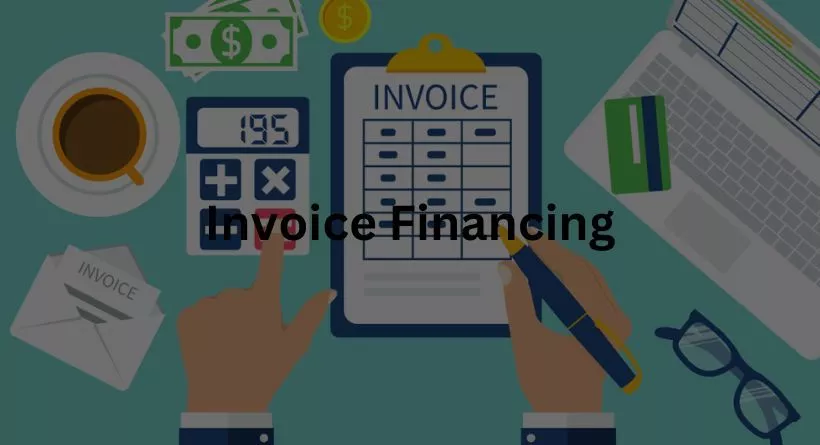You’ve come to the correct place if you’re a business owner looking for financial assistance without the requirement of security. We pledge to address the difficulties you can encounter when seeking unsecured business loans in this blog article and to provide you with the best and most dependable answers.
Finding a loan without any kind of collateral might be challenging for a business owner who needs money. Limited funding alternatives, higher interest rates, or the strict eligibility requirements imposed by traditional lenders may worry you. We are aware of the risks involved in looking for unsecured business loans.
Option 1: Short-Term Loans
Short-term loans can rescue your company’s financial life when it comes to addressing urgent demands. These loans are perfect for taking care of urgent needs since they provide immediate access to funds with a condensed payback time. Short-term loans frequently include quick application procedures that let you get funded in a couple of days.
Understanding Short-Term Loan Features and Benefits
Short-term loans are appropriate for firms that need a rapid cash injection without a long-term commitment because they normally have a repayment duration of up to 18 months. The loan amount might range from a few thousand to several hundred thousand dollars, depending on the financial health of your company.
The quick approval and funding of short-term loans is one of its key benefits. Banks may take weeks to handle traditional loans, while short-term lenders may accept and finance loans in only a few business days. When dealing with time-sensitive costs or possibilities, this quick turnaround time might completely impact the situation.
Eligibility Criteria for Short-Term Loans
Lenders often consider your business’s credit score, income, and length of operation when determining your eligibility for a short-term loan. While having a good credit score helps, some lenders also provide choices for companies with less-than-ideal credit. The goless-than-idealhat you have a reliable source of income and the means to pay back the loan within the deadline you were given.
Application Process and Funding Timeline
The short-term loan application procedure is simple and efficient. The majority of lenders provide an online application where you’ll need to submit some basic business information, financial statements, and perhaps some supporting papers. Your application will be reviewed by the lender once you submit it, and if accepted, you may get financing as soon as one to three business days.
Option 2: Business Lines of Credit
A flexible financing choice that offers your company a revolving credit capacity is a business line of credit. It is a flexible and affordable funding option since it enables you to borrow cash up to a specified credit limit and return just the amount you spend.
How Business Lines of Credit Work
Like a credit card, a company line of credit functions similarly. After being accepted, you’ll have access to a credit limit from which you can draw money as needed. A line of credit gives you the flexibility to access cash as needed, in contrast to a term loan, which provides you with a big sum upfront. Not the total credit limit, just the amount you’ve withdrawn is subject to interest.
Qualifying for a Business Line of Credit
Lenders often consider your company’s credit history, income, and length of operation when determining whether you qualify for a business line of credit. Your chances of being approved might be improved by having a high credit score and a history of reliable income. To safeguard the line of credit, certain lenders could additionally need collateral or a personal guarantee.
Pros and Cons of Using a Business Line of Credit
A company line of credit’s flexibility is its main benefit. It grants you the flexibility to access money as needed, acting as a safety net for unforeseen costs or possibilities. Additionally, as opposed to a term loan, you only pay interest on the amount you utilize, possibly savings.
However, one possible disadvantage is that business lines of credit may have higher interest rates than conventional term loans. Additionally, it’s simple to go into debt and run into repayment difficulties if you don’t handle your credit correctly.
Option 3: Invoice Financing

Invoice finance may be a useful instrument to close the gap when cash flow becomes an issue. With invoice finance, you may use your outstanding invoices as collateral to have access to quick cash. You may continue running your business normally with this financing option, even if customers wait longer to pay.
The Concept of Invoice Financing
Accounts receivable finance, another name for invoice financing, relies on a simple idea. You might sell those unpaid invoices to a lender rather than wait for your clients to pay their bills according to schedule. The lender will provide you an advance of up to 85% of the invoice’s value, which is a sizeable sum.
You can get the operating capital you need to cover your urgent financial needs by using this cash upfront. The lender will repay the remaining amount to you after deducting a minor service charge from your customer’s complete payment of the invoice.
Eligibility and Qualification for Invoice Financing
Businesses with a consistent track record of invoicing and a clientele of creditworthy customers have easier access to invoice finance. Instead of concentrating just on the credit history of your company, lenders will also take into account the creditworthiness of your consumers. As a result, invoice financing is a practical choice for new companies or those with poor credit histories.
Invoice Financing vs. Traditional Business Loans
In contrast to conventional loans, which depend on large collateral or strong credit ratings, invoice financing is determined by the creditworthiness of your clients. Without incurring extra debt or offering personal guarantees, it enables you to access the value of your outstanding debts.
Option 4: Equipment Financing
Equipment financing might be a game-changing solution if your company needs necessary equipment to run effthe efficiently. You may purchase the essential equipment or technology with the help of equipment finance without having to make a sizable upfront commitment.
How Equipment Financing Can Benefit Your Business
By spreading out the expense of expensive equipment over time through equipment financing, you may reduce the financial strain on your company. By choosing equipment finance, you may keep your cash on hand and invest it in other crucial parts of your business, like marketing or recruiting.
In addition, the value of equipment and technology frequently decreases with time. Instead of paying the entire price upfront, you may be sure that you are paying for the equipment’s useful life by financing the purchase.
Requirements for Equipment Financing Approval
Compared to ordinary loans, equipment financing often has a more lenient qualification process. Instead than only looking at your credofrthiness, lenders frequently consider the value and condition of the equipment being borrowed.
It is frequently possible to use the equipment itself as collateral, doing away with the requirement for extra assets or assurances from individuals. This may be helpful, particularly for new companies or those with a poor credit background.
Considerations When Opting for Equipment Financing
Before considering requesting equipment finance, take into account the following:
- Analyze the expected return on investment for the funded equipment.
- Make sure the financing conditions correspond to the anticipated useful life of the equipment.
- To get the most advantageous conditions, compare numerous loan offers from various lenders.
Option 5: Merchant Cash Advances
Merchant cash advances provide a substitute for traditional finance when it may not be an option for your company. Knowing how merchant cash advances operate will help you make well-informed choices about how to get the money you need to expand your company.
Understanding Merchant Cash Advances and Their Structure
A merchant cash advance is a cash advance against your future credit card sales rather than a loan. If your company takes credit card payments, you may use this source of income to get funding. You consent to pay back the lender a portion of your daily credit card sales in return for the cash advance.
Because of the way merchant cash advances are structured, the amount you return varies according to your daily sales. You’ll pay back more during times of increased sales, and less during times of decreased sales.
Qualifying for a Merchant Cash Advance
Compared to typical loans, merchant cash advances have less stringent eligibility restrictions. Instead of only looking at your credit score, lenders frequently concentrate on the number and income of your company’s credit card sales.
This approach has the benefit of allowing firms with poor credit ratings or little credit history to nonetheless qualify for a merchant cash advance. It’s important to comprehend the repayment schedule and determine whether your company’s cash flow can adequately handle the variable repayments.
Evaluating the Cost and Risks Associated with Merchant Cash Advances
Comparing merchant cash advances to typical loans will reveal greater prices and fees. A factor rate, which is a set charge applied to the advance amount, is a common way for lenders to represent the cost. This implies that you will have to pay back more than the initial sum of the cash advance.
Be sure to thoroughly consider the whole cost of the loan and how it will affect the profitability of your company before deciding to pursue a merchant cash advance. While it may be a good choice for companies in need of rapid cash, it’s important to weigh the risks and make sure the conditions fit your company’s financial objectives.
Option 6: Personal Loans for Business
Leveraging personal debts might be a viable alternative when your company needs finance. Although personal loans might provide accessibility and flexibility, it’s important to comprehend the ramifications for your own money.
Leveraging Personal Loans for Business Needs
You can utilize personal loans for comutilizeasons to get a lump sum that you can use to pay for bills. These loans are fairly unsecured, so you are not required to offer any security.
Examine the loan conditions, interest rates, and repayment plan before choosing a personal loan to make sure that they meet the financial requirements of your company. Personal loans can be particularly helpful for new enterprises or small companies with a spotty credit history.
Eligibility and Considerations for Personal Business Loans
Lenders often look at your income and credit score to determine your eligibility for a personal loan. Your chances of getting approved and obtaining more favorable loan conditions might both increase with an excellent credit score.
However, it’s crucial to take into account the possible effects on your own financial status and credit score. Your credit may suffer if you default on the loan, making it more difficult to get finance in the future.
Pros and Cons of Using Personal Loans for Business Purposes
Personal loans have the benefit of being easily accessible and simple to apply for. However, it’s essential to consider the dangers, particularly if your company is experiencing financial difficulties.
A personal loan used wisely may boost the expansion of your company, but you should be aware of the possible effects on your finances. Make sure that your financial forecasts and business strategy reflect your capacity to repay the loan on time.
Conclusion:
We’ve looked at a variety of funding alternatives in-depth in our thorough guide to unsecured business loans that can support the growth of your company. Each choice, from personal loans to short-term loans, offers particular advantages and considerations to fulfill your financial demands.
Short-term loans are the best option for time-sensitive costs since they offer immediate access to funds with brief payback periods. Flexibility is provided through business lines of credit, which let you to take out money as needed and repay depending on credit card sales.

